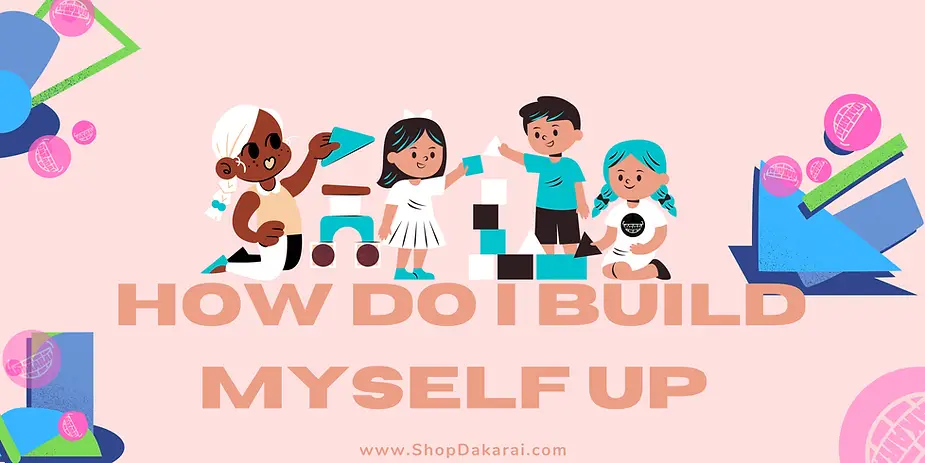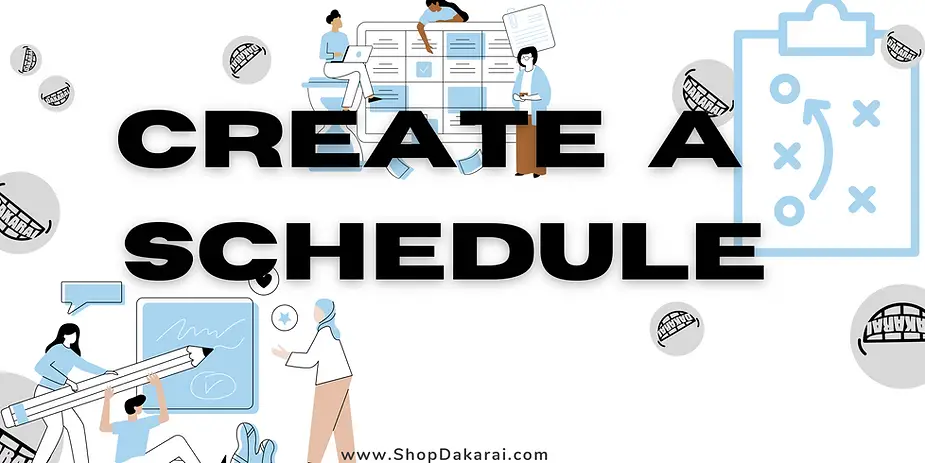
To build yourself up, you must identify and build on your strengths by practicing gratitude,
surrounding yourself in a supportive environment, believing in yourself and your goals, and disciplining yourself to stay focused.
There are many ways for you to build yourself up. Through my research, I have created a list of my favorite ways to build myself up.
Everybody has experienced times when they’ve gotten knocked down. It’s the time when life gets hard,
and you’re left wondering how you’re going to get through life. In these times, You must learn. To build yourself up, you must identify and build on your strengths by being thankful for what you have,
surrounding yourself in a positive and supportive environment, believing in yourself and your goals,
and creating a disciplined habit to keep you focused. You can be both your greatest ally and worst enemy. (source)
Practice Daily Gratuite
Remembering everything you’re grateful for can keep you from feeling like you hit rock bottom and can help to build you up.
Gratitude can give you a clear and grateful mind to achieve your goals.
You can feel happier, sleep better, and take better care of your mental health while enhancing your relationships with others by taking the time to think about and appreciate the things you have with gratitude.
Writing down things you are grateful for regularly can improve your overall well-being and life satisfaction.
Here are a few tips I’ve learned that will support your practice of gratitude and a list of affirmations with research to back them up.
- Notice good things and appreciate them.
- Savor and pay attention to those good things.
- Express your gratitude to yourself and write it down.
- I am a valuable human being
- I am grateful for my journey
- I am thankful for everything I’ve accomplished so far.
- I feel great about who I am
- I’m grateful for the life I have right now.
- I am appreciative of my family and friends.
- I am appreciative of my home and meals.
- Every opportunity that I get, I am grateful for. I am thankful for the little things in life that bring me joy.
- I am thankful to be myself.
- I am thankful to be alive.
- I continually have to remind myself to appreciate everything positive in my life.
- Happiness is within me. My successes and blessings serve as my foundation for happiness.
- I am thankful for the ability to learn, develop, and grow.
In fact, there are numerous other habits that can assist you in practicing gratitude. 12 Ways To Practice Gratitude For You
Join A Supportive Group

Finding a support group that can give you words of encouragement and motivates you to become better can build you up significantly.
Join a group that is fully supportive of your ambitions and goals.
Joining a community of like-minded individuals who have experienced similar things brings people together.
They are likely to understand one another, share a dream, and have a similar objective.
- Feeling less lonely, isolated, or judged
- Reducing distress, depression, anxiety, or fatigue
- Talking openly and honestly about your feelings
- Improving skills to cope with challenges
- Staying motivated to manage chronic conditions or stick to treatment plans
- Gaining a sense of empowerment, control, or hope
- Enhancing understanding of a disease and your own experience with it
- Getting practical feedback about treatment options
- Learning about health, economic or social resources
Believe In Your Goals
Believing in your dreams is a reflection of you. Your goals can build you up as quickly as they tear you down. Your dreams are who you are and what you value.
Believe in your vision and ability to achieve that goal. Take ownership of your dreams and allow people to know what you want and love in life.
If you don’t believe in what you can achieve, you will never put in your total effort to make things work.
Having faith in your goals, you’ll be more focused, more self-assured, and better able to carry out tasks with greater ease.
You can find a list of exactly what to do to help you not give up on your goals or dreams in this guide on 9 Top Tips For Never Giving Up On Your Dreams
Learning to believe in your goals is closely related to improving your belief in yourself; if this interests you, continue reading.17 Simple Ways To Help You Believe In Yourself In 2023
Create A Schedule

I know how it feels to feel like you have a mountain of work and not enough time to complete it all.
But by creating a schedule and using a timer, you train your brain to stay focused for a certain amount of time.
Set a 30-minute timer, then concentrate on doing the task in that time frame.Take short 5-minute breaks in between.
Stay consistent to help build/improve your concentration.
When creating a schedule, fill it only with items that will help you achieve a more meaningful and productive life,
getting rid of any obstacles that are keeping you from reaching your goals and keeping your focus on what matters.
Here are a few guidelines I’ve learned, supported by research. That shows the benefit of creating a schedule.
- Better stress
Levels lead to improved mental health, more time to relax, and less anxiety.
- Better sleep will leave you refreshed. Your daily routine influences your quality of rest.
Your sleep schedule and bedtime habits affect your mental sharpness, performance, emotional well-being, and energy level.
- better health
It is a result of just a little extra planning. Set the alarm a little earlier, and you’ll have time to exercise and eat breakfast, fueling your body for the day.
And if you are disorganized, wait a moment. I recommend reading my article on how to prioritize your time so that you can concentrate on your task. 24 Simple Ways To Help You Stay Focused In 2023
Create Goals
We all have goals and visions that make us happy. Think of something you’re interested in and work towards it.
It doesn’t matter how difficult it may be, as long as it’s for your own sake, not someone else’s—
writing down and tracking your goals that connect to who or what you value in your life increases the chance of sticking with them.
Even if your goal isn’t to walk 100 miles, planning or research that first step will help you get started. There’s no excuse, even if you don’t know where to start.
Life goals represent something besides the daily grind,
They allow us to pursue authentic aims of our choosing and enjoy a feeling of achievement when we get there.
Congratulate Yourself

We face hundreds of challenges, and we must remember to congratulate ourselves on our accomplishments.
Any positive reinforcement will help you build yourself up to become a better person, reflect on how you’ve improved, and improve your overall well-being.
We’ve all struggled with daily tasks and obligations,
but you need to learn to change your self-talk to feel empowered by motivating and praising yourself for your successes, no matter how small.
- Congratulations to me! I’m proud that I made it this far.
- I am proud of myself for making it out of a bad situation.
- Congratulations to me! I’m so proud of myself. I can’t believe I got through it!
- Dear Me, Congratulations on surviving another day, because it is not easy
- Congratulations to me. I have accomplished something spectacular
- Congratulations to me! I’m grateful for the years
- I just wanted to congratulate myself on becoming more of an amazing, caring, thoughtful person.
Discipline Yourself
Self-discipline is the way to go when it comes to building yourself up. Research shows you should act according to your actions, not your feelings!
Train your ability to take action regardless of your emotions and, in the end, be rewarded by your goals.
Disciplining yourself is the key to becoming a successful leader; focus and self-control are the foundations of happiness,
success, and accomplishing your goals. Self-disciplined people don’t spend as much time debating whether to engage in activities that don’t support their values or objectives as dependent people.
They make more informed decisions. They design their actions and beliefs and work hard to get the desired result.
They feel happier in their lives and are less likely to be lured away by temptation.
so If you are looking to take control of your habits and choices,
here are the 7 things you can do to help you master self-discipline
- Know your strengths
- create an execution plan
- Practice daily perseverance
- practice positive habits
- have a backup plan
- Surround yourself in a healthy environment (
- Learn to forgive yourself and move forward(
Related resources:
Educate Yourself

Educating yourself on challenges before you face them will help you improve yourself.
Your most valuable investment will be knowing how to face an obstacle before you take it on. This allows you to be more confident, prepared,
and knowledgeable for the task ahead. Constantly educating yourself and taking an interest in a variety of subjects can help you be able to make informed decisions about your lifestyle and choices.
If you continue to learn new things every day, you’ll stay inspired and motivated,
and you’ll look forward to each day because you’ll fill it with discovering new ways to overcome your challenges.
The following are the main factors that make self-education essential.
- helps you think out-of-the-box
- Self-education enables you to Do It Yourself.
- Helps build confidence
If you want to educate yourself more, I have written a few articles about the best self-improvement books to help you decide which book is right for you.
- Best Books On Confidence & Self-Esteem In 2023
- Best Books To Help You Improve Yourself In 2023
- 9 Popular Self-Discipline Books For You
- 8 Best Books On Self-Love In 2023
After you have educated yourself, it is time to put your ideas into action with the article. Simple Habits You Can UseTo Improve Your Life in 2022
Embrace Discomfort
To build yourself up, you must learn to embrace discomfort and be resistant to something that takes hard work.
When you don’t feel like doing a task, lean into resistance to training yourself to improve at any task you face.
We must often face uncomfortable circumstances if we are to develop and learn. For example, you must lift heavy weights if you want to become stronger.
It won’t be easy to embrace discomfort, but doing so is crucial to experiencing personal growth.
Recognizing your discomfort is the first step, followed by starting to take on your challenges rather than running away from them.
Embracing discomfort is the best way to learn and grow.
Having a “Doing” experience increases confidence and aids in developing skills to handle issues that may arise in the future outside of your comfort zone.
Getting More Sleep

Your brain and body require regular amounts of sleep to perform at their best.
Doing this can build your mood and overall performance to higher levels. Think more clearly to perform better at work and school, and make wise choices to prevent harm.
For instance, sleep-deprived driving contributes to thousands of collisions each year. It’s important to get good-quality sleep on a regular schedule,
so you feel rested when you wake up, as sleep plays a big part in both learning and memory, improving your daily mood and better preparing you to meet challenges.
Without enough sleep, it’s tough to focus and take in new information.
Through my research, I have created a chart of the recommended hours of sleep you need.
including. [1-2]
| Most adults | 7 + hours of good-quality sleep | |
| Teens | 8 to 10 hours of sleep each night | |
| School-aged children | 9 to 12 hours of sleep each night | |
| Preschoolers | 10 and 13 hours a day | including naps |
| Toddlers | 11 and 14 hours a day | including naps |
| Babies | 12 and 16 hours a day | including naps |
| Newborns | 14 and 17 hours a day | |
